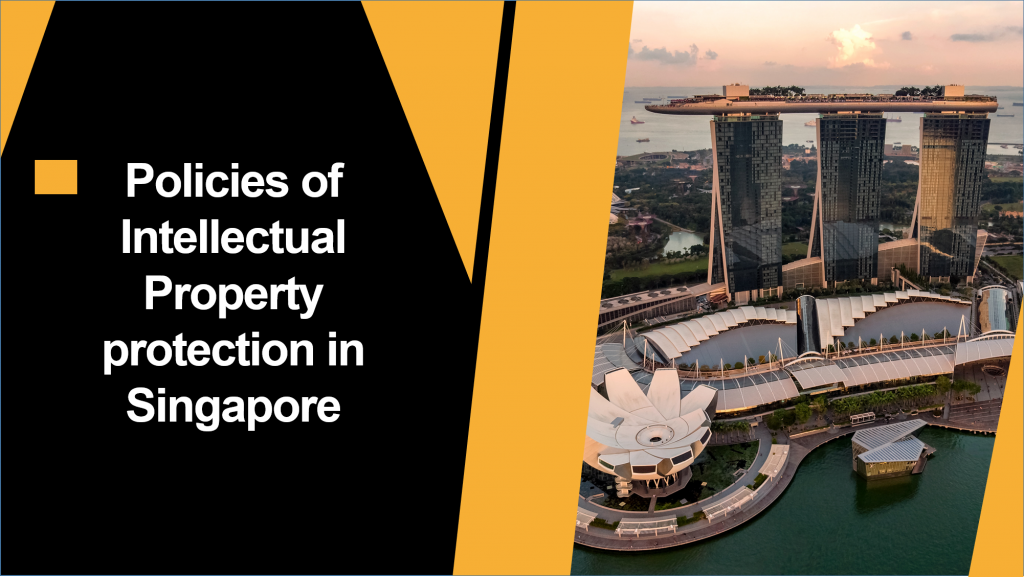In an effort to enhance the investment, Singapore has gradually created a reliable and effective intellectual property policies to protect innovative knowledge and provide fair grounds in which knowledge can be motivated to commercialize. This framework constitutes a key infrastructure, creating the basis for innovation and business growth in the innovation / intellectual economy. As part of Singapore’s plan to become an Intellectual Property hub, Singapore has supported strengthening the IP legal and enforcement mechanisms, promoting awareness and capacity building. IP, enhance international reputation. Singapore’s IP Office (IPOS) was established in April 2002 as the leading government agency in the industry. IP Academy was established in January 2003 to develop Singapore’s knowledge and capacity in intellectual property protection, exploitation and management.
Effort of Singapore in IP
Excellent intellectual property in Singapore regime has helped the country attract more important new investments in the biomedical industry, especially the pharmaceutical industry. The biomedical industry in Singapore is one of the fastest growing industries, contributing significantly to the country’s export growth. The rigorous IP regime has also helped with efforts to make Singapore a research and development hub. The strategy of making Singapore an IP hub also involves strengthening the link between IP creation and exploitation.
Singapore’s public sector research is an important source of inventions, ideas and innovation. They can be marketed to create jobs, value and wealth for the Singapore economy. For A*STAR research institutes and universities, the commercialization of research results has been considered a core activity conducted in parallel with research activities. Singapore’s funding models recognize the risks and time required for significant success in commercialization to be achieved.
In order to optimize the economic impact of IP brought about by Government-funded research, Singapore has devised clear policies and structures for effective IP management.
IP related policies
Collaboration
R&D is rarely conducted in isolation. In particular, research and development partnerships between government research institutions and the industrial sector are a key feature of the innovation system. Therefore, clear and effective guidelines and policies on the right to possess, use, and exploit IPs generated by R&D cooperation need to be formulated to facilitate partnerships.
Incentive policies in IP
Singapore has come up with measures to stimulate researchers to commercialize their work by allowing them to share a financial benefit. This assumes that researchers play a key role in determining the direction of commercialization and may not always be interested in starting new companies. One of the key American models adopted by A * STAR is to distribute 1/3 of profits to researchers, 1/3 to science, and 1/3 to schools or commercialization.
Supporting institutions
To effectively manage and commercialize IPs, it is necessary to have the support of well-trained and experienced technology transfer organizations, with information from Competitive Intelligence and Public Intelligence organizations. In 2002, A * STAR established its commercialization division, Exploit Technologies (ET) to incorporate its IP management and commercialization efforts. ET provides a technology transfer knowledge base, actively markets IP for the industrial sector, negotiates technology licensing, and helps technology transfer activities go well.
Conclusion
R&D is a process that takes time and money. Singapore’s R&D policies are initially implemented to enable MNCs to transfer Singaporean technology. Such knowledge will become an asset of Singapore. Later, in order to encourage domestic and foreign enterprises to do research on R&D, the Singapore government provided financial support for pre-market trial phases and to ensure the uniqueness of each. After researching as well as the profits that can be brought to businesses after commercialization of products, Singapore has simultaneously implemented an excellent intellectual property protection system and it is also intellectual property guarantees that promote Domestic. Foreign companies are assured to do research to bring out new results in Singapore.
Read more about Trademark registration in Singapore here.
Also, you can find the list of Singapore IP Firms here.

